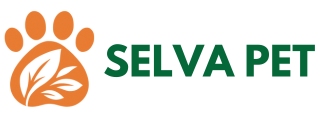The importance of the rabies vaccine for your pets can’t be stressed enough. It’s not just about keeping your furry friends safe, but also about protecting your family and community. In this article, you’ll learn why rabies prevention is crucial for everyone, how the vaccine works, and what to do if you ever face exposure. Let’s dive into the world of rabies vaccination and discover how you can play a part in keeping your pets—and yourself—safe!
Understanding the Importance of the Rabies Vaccine for Your Pets
The rabies vaccine is not just a piece of paper or a tick on your pet’s health checklist. It’s a lifeline. It is crucial for both your furry friends and the community at large. Rabies is a viral disease that affects the central nervous system and is almost always fatal once symptoms appear. This isn’t just a statistic; it’s a reality that pet owners need to grasp.
When I first adopted my dog, I was overwhelmed by the amount of information out there. But one thing stood out: the importance of the rabies vaccine is undeniable. Not only does it protect your pet, but it also safeguards everyone around them. Many states require proof of rabies vaccination as part of pet ownership. It’s not just a legal requirement; it’s a moral obligation.
If you’re still on the fence about vaccinating your pet, let me share some insights that clarify why this vaccine is essential.
Why Rabies Prevention is Key for Public Health
Rabies isn’t just a pet problem; it’s a public health issue. The World Health Organization estimates that rabies causes tens of thousands of deaths worldwide each year, and the majority of these cases come from dog bites. This is where rabies prevention becomes vital.
When your pet is vaccinated, you’re not just protecting them; you’re also contributing to the health of your community. A vaccinated pet is less likely to contract the virus and, consequently, less likely to transmit it to humans. This creates a ripple effect that helps keep everyone safe.
I remember when my neighbor’s cat went missing for a week. When she finally returned, I was relieved to find out she was vaccinated. It’s moments like these that remind me how interconnected we all are. By ensuring our pets are vaccinated, we’re taking a stand for public health.
The Benefits of Rabies Vaccination for Your Furry Friends
Let’s get into the nitty-gritty of what rabies vaccination does for our pets. First and foremost, it protects them from a deadly disease. But the benefits don’t stop there. A vaccinated pet is generally healthier and less prone to infections.
Moreover, many boarding facilities and dog parks require proof of vaccination. This means that if your pet isn’t vaccinated, they could miss out on socializing and having fun. I’ve seen how my dog lights up when he’s around other dogs, and I wouldn’t want to deprive him of that joy.
Additionally, the rabies vaccine can often be bundled with other essential vaccinations. This saves you time and money in the long run. I always recommend checking with your vet about combination vaccines, as they can offer a comprehensive health plan for your pet.
How Rabies Vaccination Necessity Protects Animals and Humans
The necessity of rabies vaccination protects not only animals but humans as well. If a pet contracts rabies, they become a risk to other animals and humans. The virus is primarily transmitted through saliva, typically via bites. So, if your pet is unvaccinated and comes into contact with a rabid animal, the consequences can be dire.
I once had a friend who didn’t vaccinate her cat. One day, the cat got into a scuffle with a raccoon. Thankfully, the raccoon was captured and tested negative for rabies, but it was a close call. This experience highlighted the importance of the rabies vaccine for pet owners.
By vaccinating your pet, you’re not just protecting your furry companion; you’re creating a safer environment for everyone. It’s a proactive step that can save lives, including your own.
Exploring the Effectiveness of the Rabies Vaccine
The rabies vaccine is highly effective, but it’s important to understand how it works. After vaccination, your pet’s immune system produces antibodies that fight off the virus. This means that if they are ever exposed to rabies, their body is prepared to combat it.
Studies show that rabies vaccines can provide immunity for several years. However, it’s crucial to keep up with booster shots as recommended by your veterinarian. I make it a point to mark my calendar for my dog’s vaccinations. It’s a simple step that ensures he stays protected.
Many pet owners often wonder about the side effects of the rabies vaccine. While some pets may experience mild reactions, such as lethargy or swelling at the injection site, serious side effects are rare. In my experience, the benefits far outweigh any potential risks.
What to Do After Rabies Exposure: Treatment and Care
If you suspect your pet has been exposed to rabies, don’t panic. The key is to act quickly. If your pet hasn’t been vaccinated, it’s critical to seek veterinary care immediately.
Your vet will likely recommend a series of vaccinations for rabies exposure. This is known as post-exposure prophylaxis, and it’s designed to prevent the virus from taking hold. I’ve had to go through this process with my pets before, and while it’s nerve-wracking, having a plan in place helps.
If your pet is showing any signs of rabies—such as behavioral changes, excessive drooling, or paralysis—do not approach them. Instead, contact animal control or your veterinarian for guidance. Keeping yourself and others safe is the top priority.
Joining the Rabies Awareness Campaign: Your Role Matters
Now that you understand the importance of the rabies vaccine, it’s time to take action. One of the best ways to make a difference is to spread awareness. Many people still don’t realize how serious rabies is.
You can start by sharing information on social media or talking to friends and family about the importance of vaccinating their pets. I often share posts about rabies awareness and vaccination clinics in my area. It’s a small effort that can have a big impact.
Additionally, consider participating in local rabies vaccination drives. These events often offer low-cost vaccinations and are a great way to engage with the community. By getting involved, you’re not just helping your pet; you’re helping to protect countless others.
Ensuring Vaccine Safety: What You Need to Know About Rabies Vaccines
When it comes to your pet’s health, safety is paramount. The rabies vaccine is among the most studied vaccines in veterinary medicine. Regulatory agencies closely monitor its safety and effectiveness.
It’s essential to work with a trusted veterinarian who can provide you with accurate information about the vaccine. I always ask my vet questions about the vaccines my pets receive. This helps me feel confident in my decisions.
Make sure to keep your pet’s vaccination records in a safe place. This not only helps you keep track of their health but is also necessary for boarding or traveling.
The Lifelong Impact of the Rabies Vaccine on Animal Health
Finally, let’s wrap it up by talking about the long-term benefits of the rabies vaccine. Vaccination is not just a one-time event; it’s a commitment to your pet’s health. A vaccinated pet is less likely to contract rabies, which means fewer health issues down the line.
Moreover, regular vaccinations can lead to a longer, healthier life for your pet. I’ve seen how my dog has thrived since getting his vaccinations. He’s energetic, playful, and has a zest for life that I cherish every day.
In conclusion, the importance of the rabies vaccine is more than just a requirement; it’s a vital part of responsible pet ownership. By vaccinating your pets, you’re not just protecting them but also contributing to the health and safety of your community.



